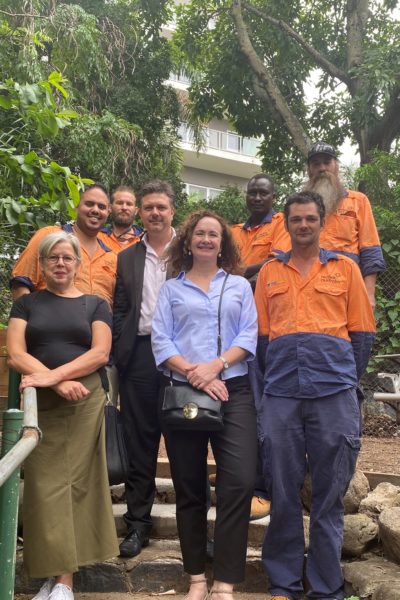
Housing and support services are about to be significantly enhanced, with a new approach to tackling the cycle of homelessness to be implemented for some of Brisbane’s most vulnerable community housing residents.
Brisbane City Council’s Pathways out of Homelessness Grant Program will provide close to $3 million over three years to enable new, innovative and sustainable solutions to address the growing community issue of homelessness in Brisbane.
A consortium comprised of respected support organisation, Communify Queensland, and community housing providers Bric Housing and BHC Creating Liveable Communities, was successful with their grant application for Sustaining at Risk Tenancies, a new program designed to deliver a coordinated approach to establishing and delivering support services to some of the providers’ most vulnerable tenants.
The consortium will receive funding of $361,250 from Brisbane City Council, which will directly fund two new dedicated support workers to focus on:
- Early assessment and case management support for at-risk tenants
- Skills development and linkages to employment, training courses and appropriate supports for identified vulnerable tenants.
Communify CEO Karen Dare said the new program will enhance collaboration between housing and support services and direct critical supports where they are needed most.
“Sustaining at Risk Tenancies will have a crucial impact on improving tenancy and wellbeing outcomes for tenants who are cycling through community housing to homelessness or crisis accommodation. It provides a powerful new response for housing and support service delivery in Brisbane that is scaleable and capable of creating systemic change” Ms. Dare said.
Providing early and targeted supports has been shown to be effective for tenancy sustainment, with AHURI research[1] demonstrating that up to almost 93 percent of vulnerable tenants linked to appropriate support services were able to successfully sustain their tenancies.
“Failed tenancies, often due to lack of support relating to debt or behavioural issues, have many far-reaching impacts not only for the individual but also for the community, and often culminating in tenants’ exclusion from safe and secure housing options” said Rebecca Oelkers, BHC CEO.
“This initiative will ensure coordinated case management support from the commencement of a tenancy, ensuring that people are able to sustain their tenancy over the longer term.”
A key component of the consortium’s program is the provision of new workforce and training opportunities that tenants may not have previously had the support or opportunity to access.
“Once tenancies are stabilised and supports are in place, the program will assist tenants to build skills in key entry level vocational areas, including construction, business, housekeeping, hospitality and cleaning, as well as volunteering opportunities,” said Craig Brennan, CEO, Bric Housing.
The consortium recognises Brisbane City Council for its commitment to addressing the impacts of homelessness in Brisbane through the Pathways out of Homeless Grant Program.
More details about the Pathways out of Homelessness Grant is available online.
–
[1] Zaretzky, K. and Flatau, P. (2015) The cost effectiveness of Australian tenancy support programs for formerly homeless people, AHURI Final Report No.252. Melbourne: Australian Housing and Urban Research Institute Limited.
